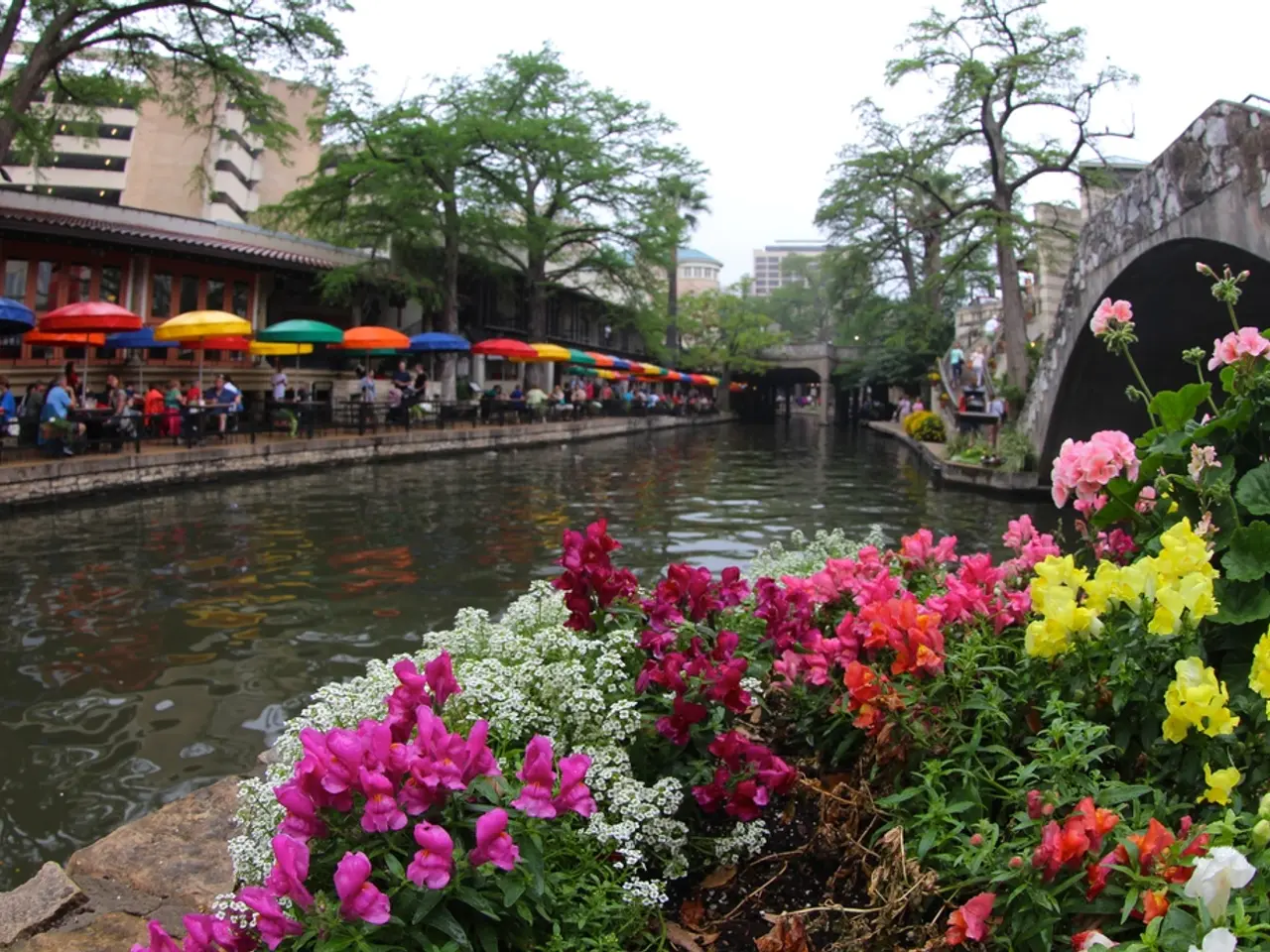Visitors from the Public Council toured social enterprise sites
In the heart of Astana, social entrepreneurship is making a significant impact, addressing social challenges through innovative business initiatives. One such example is the ANA UYI (Mom’s House) project, which has garnered international recognition, including as a Harvard Business School case study.
The Mom’s House project, established over a decade ago, embodies sustainable social entrepreneurship by merging business approaches with social impact goals. Its mission is to support disadvantaged families, reduce the number of children in orphanages, and improve the lives of vulnerable populations. Their efforts have contributed to a decrease in the number of children in orphanages from 10,000 to 3,700[1].
The Public Council of Astana, a key player in the city's social entrepreneurship landscape, recently inspected various facilities. Among these was the "Nirvana" firm, a social workshop directed by Emin Askerov, which employs people with special needs and other socially vulnerable groups. The firm produces furniture for kindergartens, eco-bags, and carpets, while also teaching upholstery to young people with special needs[2].
Zulfukhar Gaiypov, chairman of the Public Council of Astana, noted that social entrepreneurship is thriving in Astana. He emphasized that the doors of the Public Council are always open to social entrepreneurs[3]. The broader economic environment in Astana supports such initiatives through platforms like the Astana International Financial Centre (AIFC), which attracts significant investment and promotes a business climate conducive to enterprises addressing social issues[4][5].
The "Nirvana" firm also extends its reach to children with intellectual disabilities from a correctional center, where they teach them to assemble stools. A remarkable transformation can be seen in one of the students, who, despite struggling with sewing and cutting a few years ago, is now the senior master at Emin Askerov's social workshop[6].
The Social Innovation Hub, a training, support, and mentoring centre for social entrepreneurs, is another key player in Astana's social entrepreneurship scene. The Public Council of Astana, as public figures, intends to raise issues discussed during the inspection, aiming to further foster the growth of social entrepreneurship in the city[7].
The inspection also included visits to the Qadam special school, a sports-academic correctional center for children and adolescents with autism and other mental disorders, and the new Social Innovation Hub[8]. The Green TAL social workshop was also part of the tour, offering potential opportunities for students to open their own workshops after training[9].
In Astana, social entrepreneurship is not just about business; it's about empowering individuals and communities. The city's approach, which combines internationally recognised social impact projects, supportive investment and regulatory environments, and culturally grounded frameworks, is creating opportunities for those who need it most. However, more research is needed to gather detailed data on employment rates and initiatives targeting socially vulnerable groups directly within other social enterprises in Astana.
- Science can play a crucial role in Astana's social entrepreneurship landscape by providing data and insights to support initiatives that address social challenges, such as studying employment rates and initiatives targeting socially vulnerable groups in various social enterprises.
- Health-and-wellness, education-and-self-development, and science are integrated in several social entrepreneurship projects in Astana, like the ANA UYI (Mom’s House) project that not only supports disadvantaged families but also offers vocational training to children with special needs, enabling them to assemble carpets, eco-bags, and furniture for kindergartens, thereby fostering their personal growth and contributing positively to the community.




